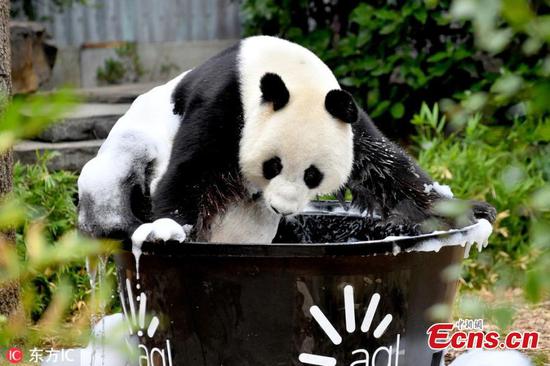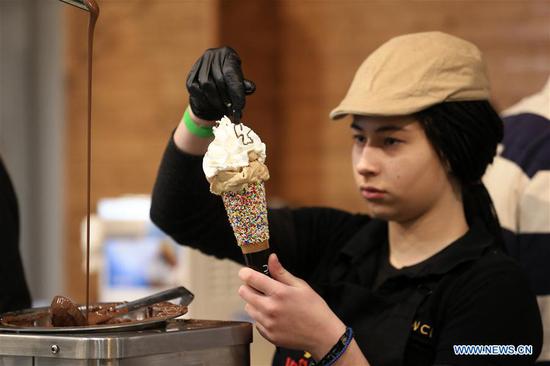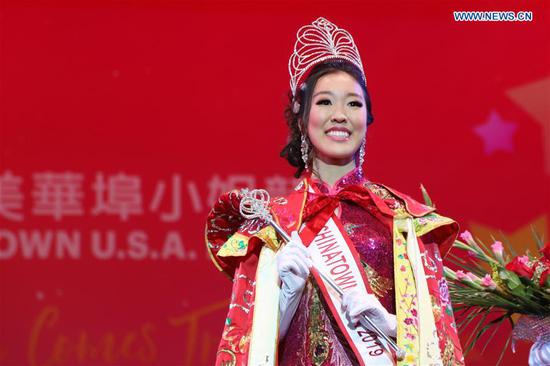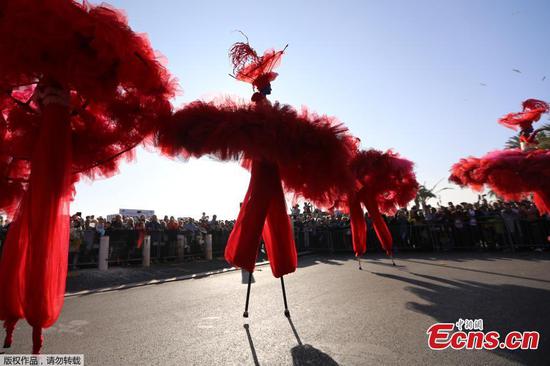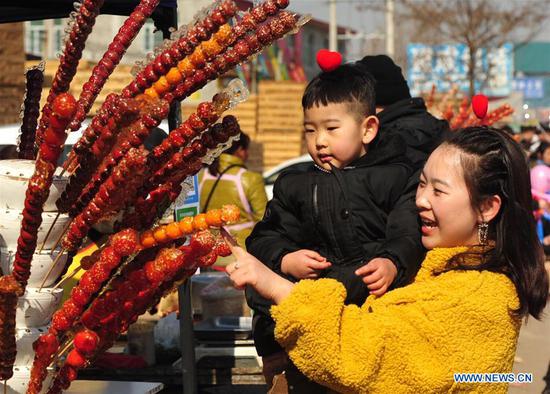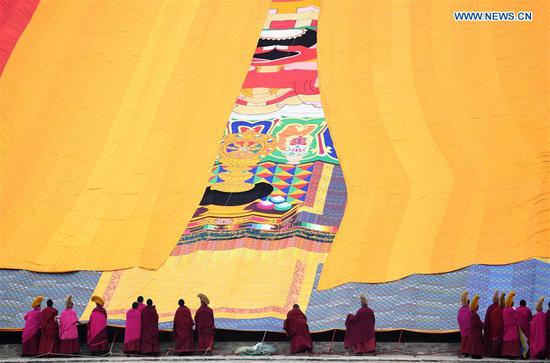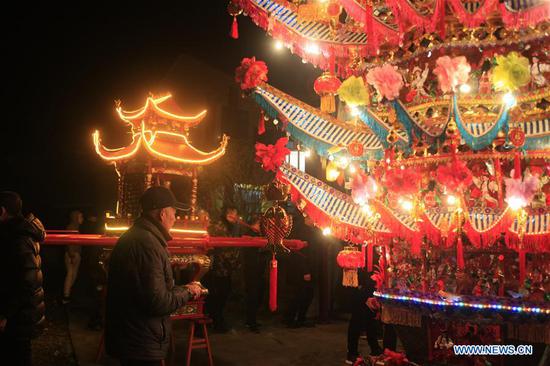
Parents in Fuzhou, Fujian province, receive digital hongbao from their son. (Photo/Xinhua)
The rule is so deeply rooted in the minds of Chinese, especially the older generation, that anyone failing to follow this code of conduct risks embarrassment and being thought of badly by family members who receive "inadequate" red packets.
In one of her short videos featuring various social phenomena during Spring Festival, Papi Jiang, one of China's top streaming stars with millions of followers, shouted, "Beware of the red packet traps!"
In the video, which mimics public safety tips from the police, the star and her co-hosts play relatives giving lucky money to each other's children. She opens a red packet, only to find that the money her son has received is 200 yuan less than she gave out. The voiceover states, "Never trade small for big, always respect reciprocal rules."
The three-minute video also offers other advice for the red packet season.
It tells children to beware when their mother says she will save their lucky money until they are 18, as it will probably be gone long before then. Adults are told to never trust relatives who tell them not to bring anything for the family dinner, as this leaves them open to the risk of being the only ones to do so and being labeled cheapskates.
The video received more than 100,000 views on WeChat, with netizens saying it is "so true", and many fueling the debate with embarrassing anecdotes. One viewer recalled that when she received a red packet from a relative, her mother took the money, put it in another red packet and handed it back to the relative's child.
Wang Yiqi, 29, an office worker for an internet technology company in Shanghai, returned to his hometown in Xunyang, a small underdeveloped county in Shaanxi province, for Spring Festival.
"When I received lucky money in childhood, the red packet contained only 20 to 50 yuan. I would be super happy if I found a 100 yuan note in the packet," he said.
Wang added that in addition to money, food and clothes used to be given to relatives during the holiday. "Gradually, reciprocal gift-giving is disappearing, and I think people are just sending red packets as they consider it a festive ritual. Now, the amount of money being given is 200 yuan or more," he said.
The increase may be nothing to the rich, but can be a heavy burden for those who are desperately poor.
Lin Yufeng, a research assistant in cultural communication at Nanjing University in Jiangsu province, said he found some poor families spent nearly one-third of their 30,000-yuan annual income on giving out red packets on various occasions. Lin made the finding while carrying out research in the rural Shangrao and Jinggang Mountain areas in Jiangxi province.
People there give red packets on many occasions, including weddings, children's one-month birthday parties, baby showers, as well as Spring Festival.
For typical families, presenting this money is not a problem, as they will eventually recoup it, but for poor people, who are more often than not divorced or childless, these are "one-way red packets", Lin said. "But they tell me that they don't want to lose face or become isolated in a small society."
This reflects the important role of the red packet in maintaining guanxi, or connections, in networking, Lin said, adding that the packets are only a form of gift, and the practice of exchanging presents is not uncommon in Western society.
He recalled being a visiting scholar at the University of California in Los Angeles, when he was invited to a Thanksgiving party. The organizer's invitation email stated that guests should bring small gifts to exchange at the gathering.
"Buying appropriate Christmas gifts is also a difficult annual task for Westerners," he said. "And with the concept of a market economy getting into more and more Chinese minds, bigger and thicker red packets are just something that come naturally. After all, it's easier for people to measure the value of the gift if it comes in cash."
Zheng Caixiong in Guangzhou and Lu Lili in Shanghai contributed to this story.












